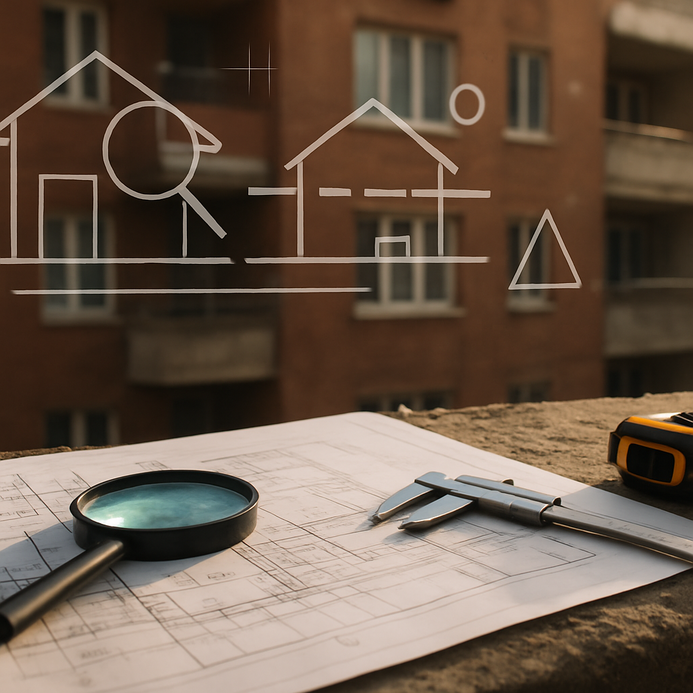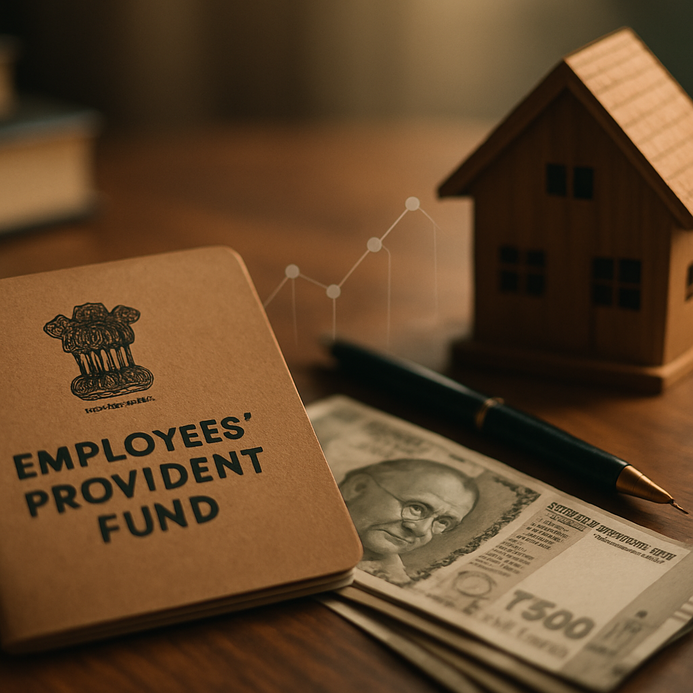Builder-Buyer Agreement: Everything You Need To Know
Understanding the Builder-Buyer Agreement
A builder-buyer agreement, it’s a big deal for folks diving into the home buying world, especially if you’re doing this for the first time. This agreement isn’t just paperwork; it’s the foundation of your relationship with the builder. What’s in it? A lot. It sets the stage for your purchase, outlining who’s responsible for what and what you can expect moving forward.
You’ll find specifics about the property, what payments look like, construction timelines, and what happens if things go south. Knowing your way around these details? That’s like having a safety net. It safeguards your investment and helps you sidestep nasty surprises down the road.
Here’s a quick glance at the key components of a builder-buyer agreement:
| Component | Description |
|---|---|
| Property details | A rundown of the property you’re purchasing. |
| Payment structure | How much, when, and how you pay. |
| Completion timelines | When the build’s supposed to wrap up and the penalties if it doesn’t. |
| Dispute resolution mechanisms | How conflicts get sorted out between you and the builder. |
Grasping the ins and outs of this agreement is crucial, it’s about safeguarding your interests. A solid agreement can really enhance transparency in the buying process, making it easier to understand your rights. You can catch more on that from the Economic Times article [Source]. Being familiar with what’s in your agreement? That’s the way to ensure everything goes smoothly.
Key Components of the Builder-Buyer Agreement
So, let’s talk about the backbone of the builder-buyer agreement and why it matters. Each piece plays a role in shielding homebuyers from future headaches. Here are some must-know elements:
| Component | Description |
|---|---|
| Parties Involved | Who’s who, the builder and buyer, with their deets. |
| Property Details | Location, size, style, and any cool features. |
| Payment Terms | Total price, payment times, and methods. |
| Completion Date | When the builder’s supposed to hand over the keys. |
| Cancellation Policy | Under what conditions can you cancel and what happens if you do. |
| Dispute Resolution | How disagreements get resolved, there’s gotta be a plan. |
For a deeper dive into why each of these pieces is critical, click over to Builder-Buyer Agreement: All You Need to Know. And don’t forget, checking out sample agreements is a great way to set expectations. If you’re itching for templates, that resource is here: Essentials of a Builder-Buyer Agreement.
Lastly, never skip talking to an expert or a legal eagle before you put pen to paper. This way, you’ll get a clear picture of all your rights. Want more info? Our article on Understanding Force Majeure in Builder-Buyer Agreements is a good read.
Clause-by-Clause Breakdown
Now, let’s break it down and look at what really goes into a builder-buyer agreement. Trust me, understanding these clauses is vital if you want to dodge pitfalls down the road.
| Clause | Purpose | Implications |
|---|---|---|
| Property Details | Clearly states the property you’re buying, location and specifics included. | Helps avoid any misconceptions later on. |
| Payment Terms | Clearly outlines payment dates and amounts. | Keeps your finances on track. |
| Possession Date | When will you get the keys to your new home? | Crucial for planning your move. |
| Renovation Rights | Your rights regarding any changes you want to make. | Personalizing your new space is part of the deal. |
| Quality and Specifications | Sets standards for what should be built and how. | Ensures you’re getting what you expect in quality. |
| Warranty and Liability | What’s covered if things go wrong? | Saves you from future repair costs. |
| Default and Termination | What happens if either party doesn’t hold up their end? | Protects you against unexpected issues. |
Getting the gist of these clauses helps you make informed choices before signing on the dotted line. Resources like Understanding Builder-Buyer Agreements and Vital Components of a Builder Buyer Agreement provide further insights.
Each clause has a role, clarifying your rights and obligations. If you want more on related stuff like monthly maintenance billing or RERA compliance, just take a look at our other articles.
Common Pitfalls in Builder-Buyer Agreements
Jumping into a builder-buyer agreement can feel pretty overwhelming, right? Especially if you’re a first-time buyer. Here are some common traps people fall into and how to sidestep them.
1. Overlooking Key Clauses
A lot of buyers skip over critical clauses and that can bite them later. Important bits like payment schedules, construction timelines, penalties for delays are a must-read. Never skim these.
| Clause Type | Importance |
|---|---|
| Construction Timeline | Makes sure you know when things will finish. |
| Payment Schedule | Stops unexpected money troubles. |
| Penalty Provisions | Gives you options if the builder falls behind. |
2. Ignoring Legal Terms
Terms like “Force Majeure”, weird jargon, sure, but it matters. First-time buyers often gloss over these, leaving builders a loophole to not complete work due to unexpected events. Brush up on these terms; they’re not just fluff. Need a hand? Check out our guide on Force Majeure.
3. Lack of Clarity on Property Specs
Vague specs? Recipe for misunderstandings. Be clear about materials, layouts, and shared facilities before you sign.
4. Failing to Check Builder Credentials
A little background checking can save a lot of headaches. Look up reviews, check out previous projects, and see if they’ve had any legal drama. You can consult resources like 7 Essentials of a Builder-Buyer Agreement for more hints about builder reputation.
5. Not Knowing Your Rights
Be super clear on your rights within this contract. That means understanding cancellation terms, refunds, and when you can expect to move in. A sample builder-buyer agreement can really help you get a grip on your rights and responsibilities.
Conclusion
To dodge these common traps, take your time reviewing your builder-buyer agreement. A builder buyer agreement PDF can really help clarify things. Familiarize yourself with every clause and don’t hesitate to seek legal advice to clear up any confusion. Protect your investment in the home of your dreams!
For further reading:
– Essentials of a Builder-Buyer Agreement
– Builder-Buyer Agreement: A Must-Know Guide
And don’t miss our articles on all things home buying, like First-Time Home Buyer Tips and Understanding RERA.
Empowering Your Purchase: Tips for Confident Signing
Getting familiar with the builder buyer agreement is non-negotiable for first-time home buyers. You’ve got the right to negotiate, don’t be shy about getting clarity on any terms that seem fuzzy. You might even score some better costs, upgrade options, or more lenient timelines.
Looking for legal help? That’s a smart move. A real estate lawyer can help you sift through the builder buyer agreement PDF, breaking down those specific clauses you might not fully grasp. Like we said before, understanding default terms and what happens if obligations aren’t met is essential.
Checking out sample builder buyer agreements can also be eye-opening. A site like Builder Buyer Agreement Sample Contracts offers various templates to show how things usually go. Use these as a guide to help strengthen your negotiation game.
| Key Considerations | Importance |
|---|---|
| Clear Terms | Stops confusion in its tracks. |
| Legal Review | Keeps your investment safe. |
| Sample Agreements | Makes negotiating easier. |
In short, don’t rush the builder buyer agreement. Negotiate, consult a legal expert, and look over sample agreements to feel empowered in your decisions. Dive into our further reading with Key Clauses in Builder Buyer Agreements and Understanding Monthly Maintenance Bills.
FAQ
- What is a builder-buyer agreement? A builder-buyer agreement is a legal contract that outlines the relationship between the homebuyer and the builder, detailing responsibilities, payment terms, and timelines.
- Why is a builder-buyer agreement important? It protects the interests of both parties, providing clear expectations and legal recourse in case of default or disputes.
- What should I look for in a builder-buyer agreement? Key components include payment structure, property details, cancellation policy, and dispute resolution mechanisms.
- Can I negotiate terms in a builder-buyer agreement? Yes, as a buyer, you have the right to negotiate terms that you find unfavorable or unclear.
- What if the builder fails to deliver on time? Most agreements include penalty clauses that outline repercussions if the builder fails to meet the agreed-upon timelines.













